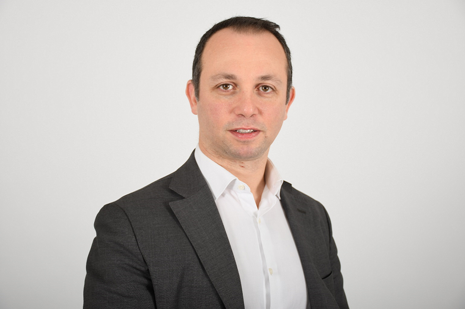
Robert joined IATA in 2017 as Area Manager France, Belgium and the Netherlands after acquiring almost 20 years of experience in the airline industry. He started out working for Air France – KLM where he last served as country Manager for the United Arab Emirates before joining Etihad Airways. He served with the Middle East carrier as General Manager Sales for the Hub in Abu Dhabi, prior to being promoted to General Manager France and Spain, based in Paris.
He currently sits in Paris where he covers all IATA activities for the three countries. Member airlines in this cluster include: Air France, Air Austral, Air Caraibes, Corsair, APG Airlines, Air Corsica, Brussels Airlines, KLM, ASL Airlines.
Robert in his own words:
“I believe we are lucky to have aviation. The current Covid-19 crisis serves as a perfect reminder of what it would be like to live without connectivity and the freedom to travel to meet family, friends or to discover new places and cultures. This does not mean however that I am not conscious about aviation’s environmental impact, but I am proud to work in an industry that takes this responsibility very seriously. The Carbon Offsetting Scheme for International Aviation (CORSIA), (un)fairly unknown to the general public, is a good example.
I enjoy meeting and spending time with people, so there is no better place to work than in aviation! I am confident we will come out of this crisis wiser and stronger. On my off-time, I really enjoy martial arts. I picked up Jiu-Jitsu, but Judo has been part of my life for a long time, as I acquired my black belt back in 1992! This sport is also a state of mind to look up to thanks to the 8 great universal values it promotes and which can be very helpful in all types of relationships: Courage, Respect, Modesty, Friendship, Honor, Honesty, Self-control and Courtesy.”
***
Robert, thanks for taking the time to answer our questions, particularly in such challenging times.
France, Belgium and the Netherlands have been hit quite severely by the epidemic and very sadly many lives have been lost. Fortunately, the situation is evolving positively, and infections have been steadily going down thanks to the measures put in place by the respective governments.
Aviation has been almost completely shut down with many airlines grounded or operating at a single digit percentage of their normal capacity.
I believe that the different governments’ responses have really been supportive for the sector and I would like to take the opportunity to thank the Belgian, Dutch, and French authorities for this. The crisis is not yet behind us and our sector will most probably need further support in the coming months. The longer the crisis, the more airlines are under the pressure of costs, which constitutes yet another threat to recovery.
The latest EASA/ECDC guidelines and the more recent ICAO recommendations offer a quick and harmonized approach to restart, which is what both the public and airlines expect.
In the initial weeks of the crisis, the travel agency community and tour operators managed to amend the Package Travel Directive, granting the possibility to offer customers vouchers. We advocated for the same solution for the airlines with the local National Enforcement Bodies which were very supportive, only to run into an opposition at European level to amend Regulation 261 on passenger rights. It is disappointing but we have to move on.
As of today, for the same air traveler, there are still two different measures for applying refunds (using vouchers), depending on his/her type of travel, be it leisure or business. Many airlines continue to offer very flexible air tickets to help passengers deal with the uncertain situation.
The passenger rights issue shows the complexity of the current situation and the clear need for unity, collaboration and a constructive approach in the sector, particularly ahead of summer, the high season for European tourism and when airlines carry around 50% of these travelers.
In most cases, countries are aligned to the recent guidelines and we are actively engaging the stakeholders for a safe restart. In my opinion, two main points are to be clarified to enable a sound restart: social distancing onboard (the industry opposes leaving the middle seat empty due to the lack of scientific evidence on the health benefits it brings), and mandatory quarantine upon arrival, which is equivalent to a travel ban. Let’s face it, who wants to travel to be stuck in a room for 14 days when reaching their destination? IATA has issued clear positions on both topics. Hopefully, we will see a fast and smoothly executed restart at European level, to be followed by the intercontinental one, both of which within the EASA/ECDC and ICAO frameworks.
When announcing its help for Air France through state guaranteed loans, the French Government expressed its desire for air transport to be replaced by rail or even dropped whenever the trip can be done in less than 2.5 hours. It may be a virtuous ambition; however this should not come at the cost of reducing or even suppressing connectivity for some locations. France has a very good network of airports and it should make good use of it. This topic requires consulting the involved stakeholders (including the French regions) to better understand the value and benefits of the air link, before taking a decision. In our advocacy, we call on governments to support airlines in this unprecedented situation. This help will also allow them to respect their environment commitments by investing in and operating modern fleet, as well as developing their Sustainable Aviation Fuels initiatives. Achieving green objectives is closely tied to government support…
Additional information: